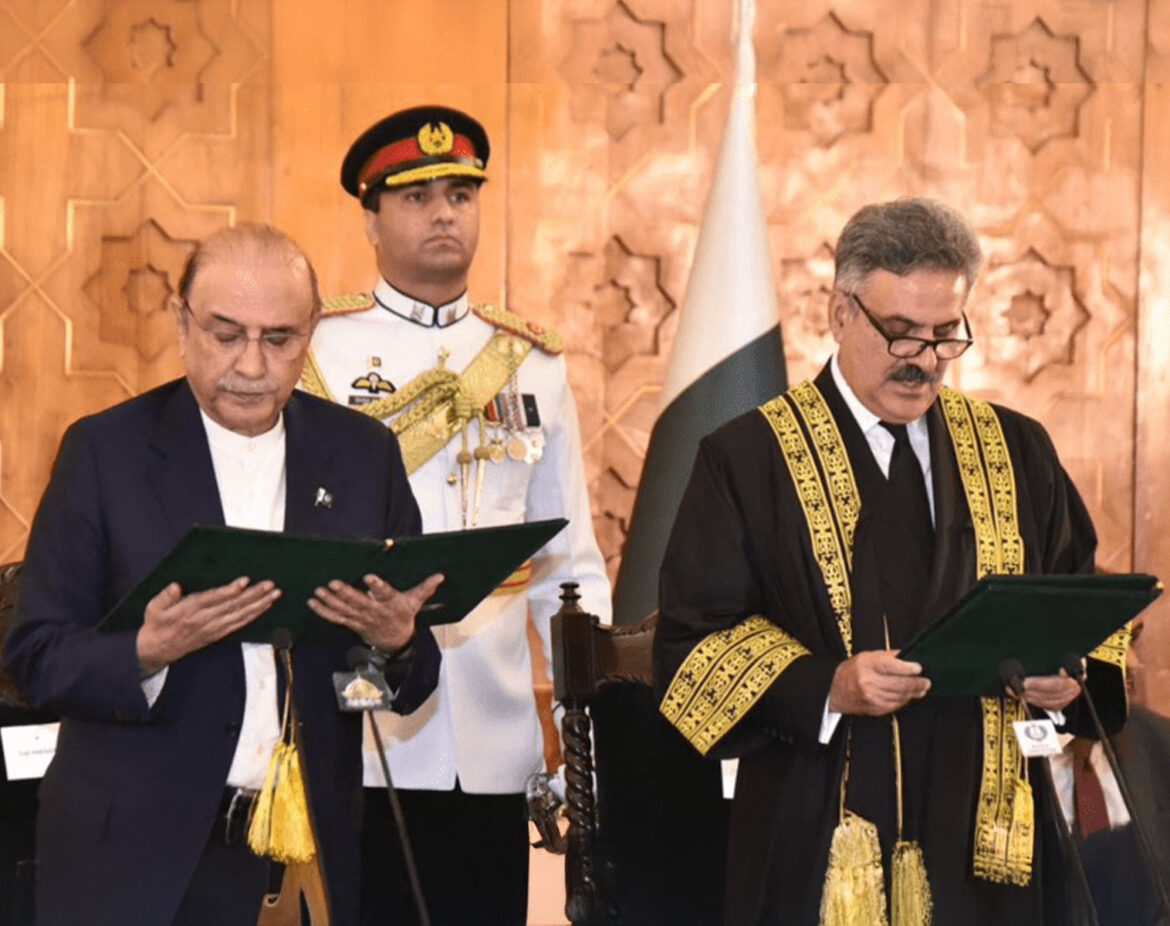President Asif Ali Zardari administered the oath of office to Justice Yahya Afridi, who was sworn in as the 30th Chief Justice of Pakistan (CJP) on Saturday. The ceremony witnessed the presence of prominent dignitaries, including Prime Minister Shehbaz Sharif, the three services chiefs, Senate Chairman Syed Yousaf Raza Gillani, National Assembly Speaker Ayaz Sadiq, federal ministers, provincial governors, chief ministers, judges of the Supreme Court and high courts, former chief justices, and representatives from legal bodies.
Upon his arrival at the apex court, Chief Justice Afridi was honored with a guard of honor by the police, marking a ceremonial start to his tenure.
As his first official act, CJP Afridi reconstituted the three-judge committee responsible for forming benches to hear cases, reinstating Justice Munib Akhtar as a member. The committee is now headed by Chief Justice Afridi and includes senior puisne judge Justice Syed Mansoor Ali Shah.
Justice Afridi’s appointment comes under a new constitutional framework established by the recent 26th Constitutional Amendment, which significantly alters the process of appointing chief justices. Under this amendment, a parliamentary committee now selects the chief justice from a panel of three senior-most judges of the Supreme Court, rather than the senior-most judge automatically assuming the position upon retirement.
Notably, CJP Afridi’s appointment bypassed both Justice Akhtar and Justice Shah, who were senior to him, reflecting the contentious nature of recent judicial appointments. The reconstitution of the three-judge committee is viewed as a pivotal move to address previous tensions among Supreme Court judges during former Chief Justice Qazi Faez Isa’s term.
The committee, established in accordance with the Supreme Court (Practice and Procedure) Act, 2023, is tasked with the essential role of forming benches. Recently, President Zardari approved an ordinance allowing the CJP to nominate the third member of this committee, thus granting him greater authority in bench formation.
The Supreme Court’s Registrar Jazeela Aslam confirmed the new committee’s structure, which has already initiated seven benches to address cases in the upcoming week. The first bench is set to include CJP Afridi and Justice Shahid Bilal Hassan, with subsequent benches composed of various other justices.
In addition to his immediate actions, CJP Afridi has convened a full court meeting for all available judges at 1 PM on Monday. He has also scheduled meetings with administrative judges of the Anti-Terrorism Courts for progress reports on November 7, followed by a Supreme Judicial Council meeting on November 8.
A key initiative introduced by CJP Afridi is the expansion of the live-streaming service previously initiated by former CJP Isa. This service, now extended to all courtrooms, will enhance transparency in judicial proceedings. However, the broadcast will depend on obtaining consent from all involved parties, especially concerning the confidentiality of female petitioners.
A committee is currently developing proposals regarding the necessary equipment and logistics for this live-streaming expansion, which will be presented to the Chief Justice for review and approval.



